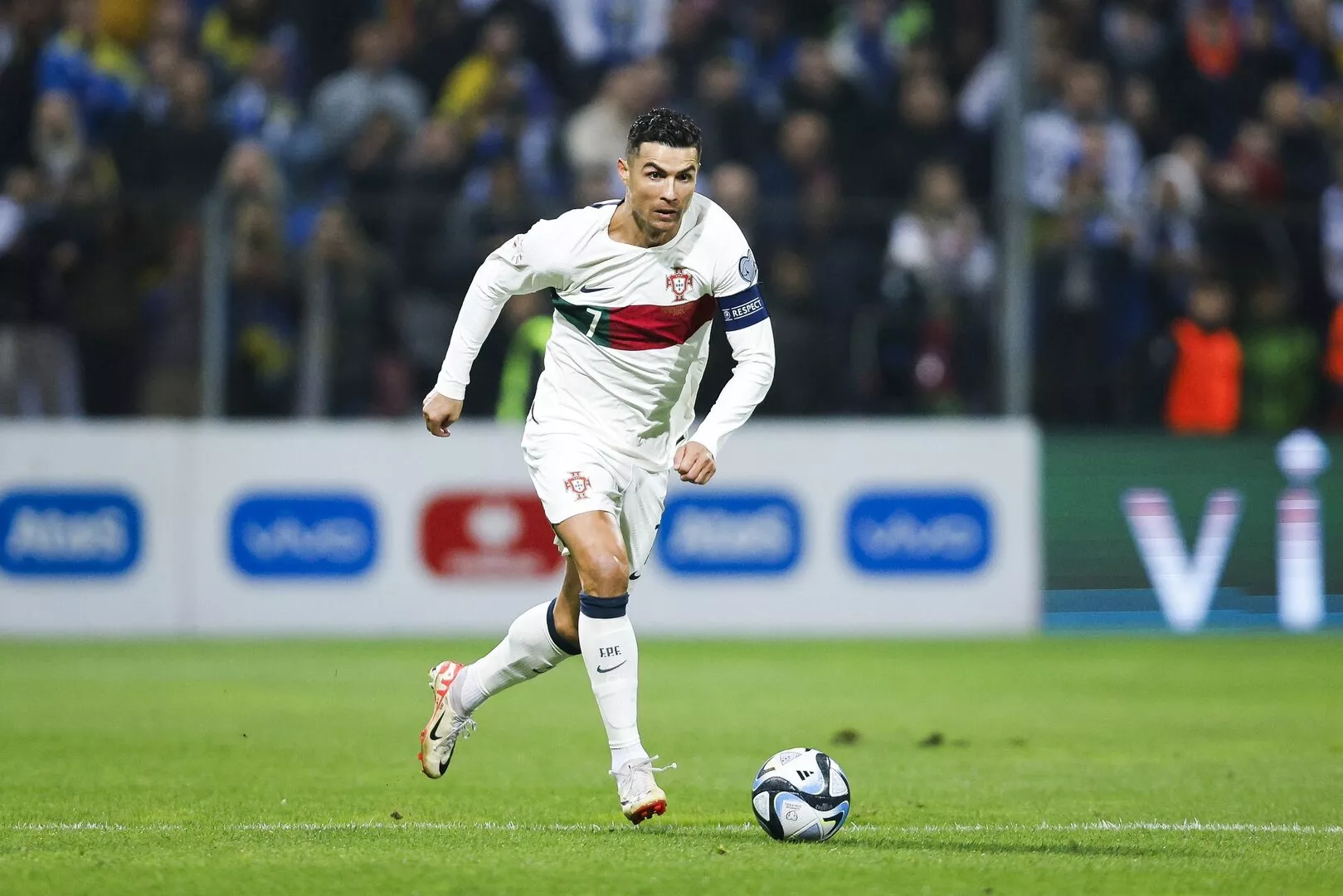
In the heart of Funchal, Madeira, a humble island nestled amidst the Atlantic’s embrace, a young boy named Cristiano Ronaldo dos Santos Aveiro embarked on a journey that would forever etch his name into the annals of football history. Born on February 5, 1985, to a working-class family, Ronaldo’s childhood was marked by a relentless passion for football that burned brighter than the island’s sun.
From the tender age of three, a football became an extension of his being. Hours upon hours were spent honing his skills in the narrow streets and makeshift pitches of Santo António, his hometown. His father, José Dinis Aveiro, a municipal gardener, recognized his son’s extraordinary talent and encouraged his aspirations. Despite financial constraints, he enrolled Cristiano in the local football club, Andorinha, where his raw abilities began to shine.
As Ronaldo progressed through the ranks of youth football, his exceptional talent became increasingly evident. His speed, agility, and uncanny ability to weave through defenders with mesmerizing dribbling skills captivated onlookers. At the age of 10, he joined Nacional, one of Madeira’s most prestigious clubs, where he quickly rose through their youth system. His performances caught the attention of Sporting Lisbon, one of Portugal’s footballing powerhouses, who signed the young prodigy at the tender age of 12.
Ronaldo’s move to Sporting was a defining moment in his career. The club’s state-of-the-art facilities and rigorous training regime provided him with the perfect environment to refine his skills and develop his physical prowess. He excelled in Sporting’s youth teams, amassing an impressive record of goals and assists. His exceptional talent and tireless work ethic earned him the admiration of coaches and teammates alike.
In 2001, at the age of 16, Ronaldo made his professional debut for Sporting’s B team. His dazzling skills and unwavering determination quickly caught the attention of the first-team manager, Laszlo Bölöni. In October 2002, Ronaldo, still only 17, made his memorable debut for Sporting’s first team in a pre-season friendly against Manchester United. His performance that day, marked by his electrifying pace and fearless dribbling, left an indelible impression on the English giants.
News of Ronaldo’s exploits reached the ears of Sir Alex Ferguson, Manchester United’s legendary manager, who dispatched his scouts to observe the young Portuguese winger in action. Ferguson was immediately captivated by Ronaldo’s raw talent and boundless potential. In August 2003, Manchester United secured the services of the 18-year-old Ronaldo for a fee of £12.24 million, making him one of the most expensive teenage players in football history.
Ronaldo’s arrival at Old Trafford marked a turning point in his career and the beginning of an extraordinary chapter in Manchester United’s illustrious history. He quickly established himself as an integral part of Ferguson’s all-conquering team, forming a formidable attacking trident with Wayne Rooney and Carlos Tevez. Ronaldo’s blistering pace, devastating dribbling skills, and clinical finishing ability terrorized defenses across England and Europe.
Under Ferguson’s tutelage, Ronaldo blossomed into one of the most complete and feared forwards in world football. He honed his skills, developed his physical attributes, and evolved into a player capable of deciding matches almost single-handedly. Ronaldo’s contributions were instrumental in Manchester United’s unprecedented success during his six seasons at the club. He played a pivotal role in the team’s three Premier League titles, one FA Cup triumph, two League Cups, and the club’s first UEFA Champions League title in 2008.
Ronaldo’s spell at Manchester United was marked by numerous individual accolades and awards. He won the prestigious Ballon d’Or, awarded to the world’s best player, in 2008, becoming the first Portuguese player to receive the honor. He also won the FIFA World Player of the Year award in 2008 and 2013, further cementing his status as one of the greatest players of his generation.
In 2009, Ronaldo made a sensational move to Real Madrid for a world-record transfer fee of £80 million. At the Santiago Bernabéu, he continued to shatter records and scale new heights of success. He became the club’s all-time leading scorer, surpassing the legendary Raúl, and led Real Madrid to two La Liga titles, two Copa del Rey titles, and four UEFA Champions League titles, including an unprecedented three consecutive triumphs from 2016 to 2018.
Ronaldo’s achievements with Real Madrid cemented his legacy as one of the greatest players in the history of the game. He won the Ballon d’Or four more times, in 2013, 2014, 2016, and 2017, equaling Lionel Messi’s record. He also won the FIFA World Player of the Year award in 2016 and 2017, becoming the first player to win the award five times.
In 2018, Ronaldo embarked on a new challenge, joining Italian giants Juventus for a fee of €100 million. In Turin, he continued to defy expectations, winning two Serie A titles, a Coppa Italia, and two Supercoppa Italiana. Despite being in his thirties, Ronaldo maintained his remarkable scoring prowess and helped Juventus dominate Italian football.
Ronaldo’s achievements with Manchester United, Real Madrid, and Juventus are a testament to his exceptional talent, unwavering determination, and relentless pursuit of excellence. He has established himself as one of the most decorated players in football history, with a trophy cabinet filled with major honors and individual accolades.
Beyond his achievements on the pitch, Ronaldo has become a global icon, transcending the boundaries of football. His influence extends far beyond the stadium, inspiring countless young aspiring footballers worldwide. Ronaldo’s story is a testament to the power of dreams, hard work, and the unwavering belief in oneself.